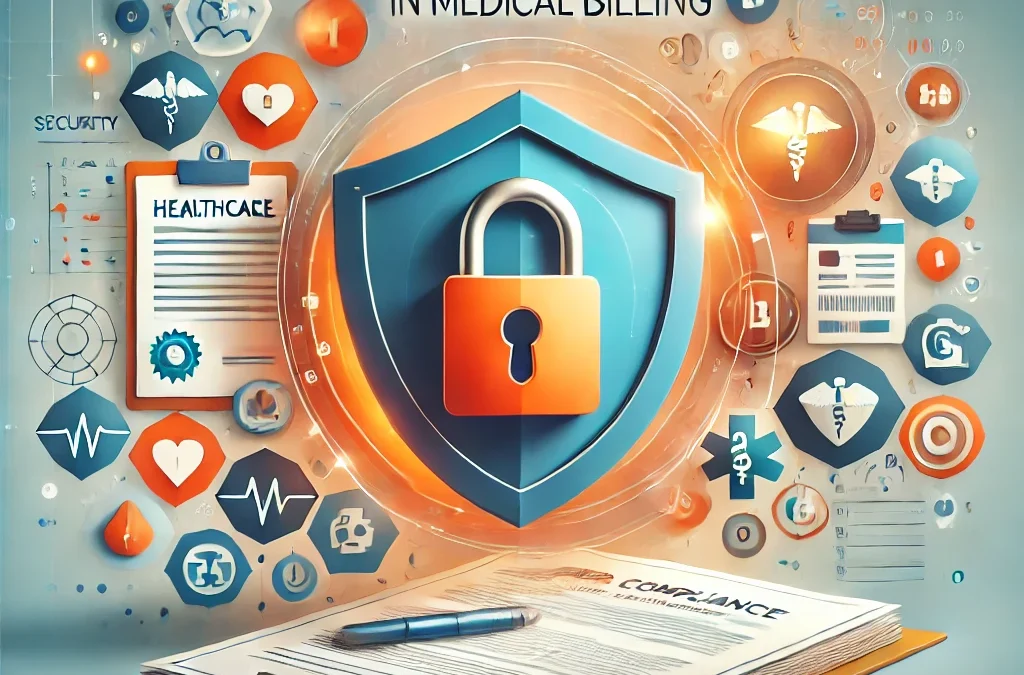HIPAA Compliance in Medical Billing
HIPAA compliance is an essential aspect of medical billing, ensuring that patient information is handled securely and confidentially.
Failure to comply with HIPAA regulations can result in severe penalties, making it crucial for healthcare providers and billing professionals
to understand the requirements.
Introduction to HIPAA and Medical Billing
The Health Insurance Portability and Accountability Act (HIPAA) was enacted to protect the privacy and security of patient information.
In the medical billing process, HIPAA compliance ensures that sensitive health data is handled responsibly.
Key Components of HIPAA
- Privacy Rule: Protects the confidentiality of patients’ health information.
- Security Rule: Sets standards for electronic protected health information (ePHI).
- Enforcement Rule: Details the penalties for non-compliance.
How HIPAA Impacts Medical Billing Processes
- Handling of PHI: Medical billing requires access to patient data for claims processing.
- Secure Data Transmission: HIPAA mandates encryption and secure communication methods.
Penalties for Non-Compliance with HIPAA
Non-compliance with HIPAA can result in financial penalties ranging from $100 to $50,000 per violation. In severe cases, criminal
charges can be filed, leading to additional fines and imprisonment.
HIPAA-Compliant Billing Practices
- Securing Electronic Medical Records (EMR): Ensure that only authorized personnel have access to patient records.
- Implementing Encryption: Encrypt data to protect it during transmission.
Training Staff for HIPAA Compliance
Regular training is essential to keep staff informed about HIPAA regulations. Many healthcare organizations provide HIPAA compliance
certification to employees to ensure they understand their responsibilities.
Technology and HIPAA Compliance
Billing software plays a significant role in maintaining HIPAA compliance by encrypting sensitive information. Additionally,
cloud-based solutions must meet HIPAA standards to store and transmit PHI securely.
Best Practices for HIPAA-Compliant Medical Billing
- Limit access to sensitive data to authorized personnel only.
- Use audit trails to track access to patient records and billing information.
Common HIPAA Violations in Medical Billing
- Unauthorized access to PHI by staff or third parties.
- Improper disposal of physical or electronic health records.
Challenges of Maintaining HIPAA Compliance
Healthcare providers must stay updated with changing regulations and ensure that all staff members understand their role in maintaining
compliance. This can be challenging, especially for large organizations with multiple locations.
The Role of Third-Party Billing Services
Many healthcare providers outsource their billing to third-party services. These vendors must adhere to HIPAA regulations to avoid
violations. Regular monitoring and audits ensure that third-party providers maintain compliance.
Auditing and Monitoring for HIPAA Compliance
Internal audits help healthcare providers identify potential issues and correct them before they lead to violations. Regular monitoring
of billing practices ensures continued compliance with HIPAA standards.
Conclusion – Importance of HIPAA Compliance in Medical Billing
HIPAA compliance is essential for protecting patient privacy and ensuring secure billing practices. By following HIPAA guidelines and
implementing best practices, healthcare providers can avoid penalties and build trust with their patients.
FAQs
What is the role of HIPAA in medical billing?
HIPAA ensures that patient information is handled securely and confidentially throughout the billing process.
What are the consequences of non-compliance?
Non-compliance can result in financial penalties, criminal charges, and damage to an organization’s reputation.
How can medical billing software help with HIPAA compliance?
Billing software can encrypt data and provide secure communication channels for transmitting patient information.
How often should staff be trained on HIPAA?
Staff should receive HIPAA training annually or whenever regulations change.
Can third-party billing services be HIPAA compliant?
Yes, third-party providers must follow HIPAA guidelines to ensure compliance when handling patient data.


Recent Comments